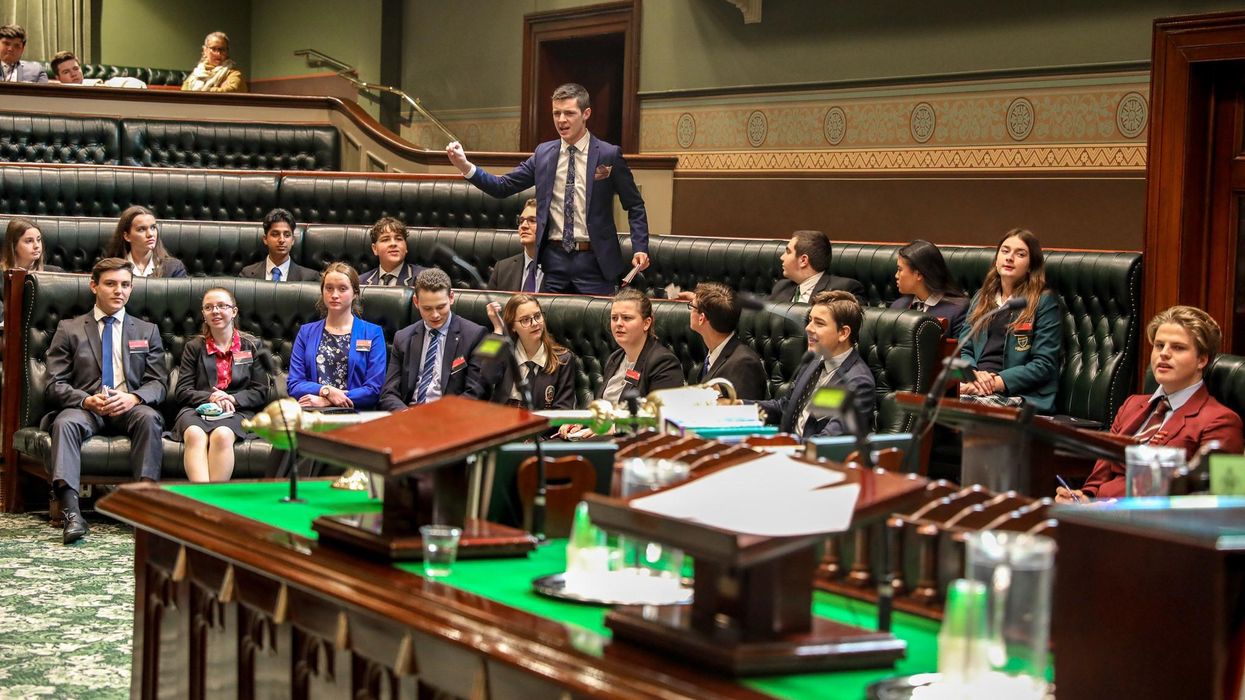Menon is in her first year at Princeton University and is a fellow with The OpEd Project, a nonprofit that promotes more diversity among thought leaders.
It is time for the Biden administration to ensure the voices of young people are finally heard by establishing formal roles for youth in the federal government.
A year ago, as I was a high school senior preparing to fly north as one of two delegates representing Florida in the annual Senate Youth Program, the Covid-19 pandemic began to take shape and our week in Washington was abruptly canceled. But it was replaced with a virtual program affording us the opportunity to learn from senators, Foreign Service officers nd public health officials. This unique experience, engaging with the inner workings of our democracy among other passionate students, left me wondering why we have so little influence over politics and the government in our country.
Young people played a pivotal role in last year's election. But to continue this momentum of youth civic engagement, we must be enfranchised and prioritized within the political system. When we see that our interests, and the interests of our generation, are protected by the government, we will be encouraged to participate for years to come.
The issues that disproportionately affect our generation — starting with climate change, gun violence and systemic discrimination — have been placed on the back burner for many years, and we need youth voices in our government to advocate for solutions that will benefit our generation.
Though a seat in the Oval Office may be reserved for those older than 35, politics at large must not exclude younger people. We need youth leaders to take on formal roles in government, representing the policy interests of the next generation.
For many years, for example, young people have been at the forefront of the climate justice movement, raising awareness and seeking solutions to the environmental, health and social implications of climate change. While the 78-year-old President Biden has appointed an extensive and dedicated climate team, we are yet to see any youth advocates represented in his administration.
Therefore, organizations such as March for Our Lives, NAACP Youth & College Division, United We Dream and Sunrise Movement have rallied behind the #YouthInGov initiative. It calls on the president to establish an independent Office of Young Americans, appoint a director of youth engagement and employ young people in administrative positions.
Policy making and advocacy will be most effective when it is intergenerational and collaborative — instead of one generation being left to speak for another.
We need equitable representation for members of Generation Z, from diverse backgrounds, to influence federal policy making from inside the government. Today, many such positions have age floors — 25 to be a House member and 30 to be a senator, for example — while many other countries reserve government positions for young people. Only Britons ages 11 to 18 may be elected to the UK Youth Parliament, where they advocate on issues such as educational access, child poverty and environmental justice. The forum has not only expanded the impact of young voices in the United Kingdom but has also introduced important policy initiatives such as the inclusion of physical and mental health education in schools.
Similar youth councils and parliaments exist across the world in countries from Canada to Malaysia, and from Afghanistan to Greece. And here in the United States, cities including Philadelphia, Sacramento, Calif., and Salem, Mass., have special panels for young people to advocate on behalf of their generation. Last year, for instance, the Philadelphia Youth Commission designed policies to minimize police and gun violence, increase access to sanitary products in public schools and expand Covid-19 information to youth populations — accurate responses to interests of the city's young people.
We need to expand such opportunities, from school boards to Washington. Giving a voice to youth advocates, especially those from marginalized communities, will engender a greater sense of belonging for this underrepresented group in politics.
There are many young Americans who genuinely aspire to serve our government, but they lack meaningful opportunities to do so. Opportunities are typically limited to campaign volunteering and organizing. Denied much of a chance to propose or craft our own policy solutions, we are instead forced to stand behind candidates we hope will prioritize our interests.
Young people are more than a voting bloc to be leveraged in the political power game; we are an important community with a large stake in politics.
In a society where influence is reserved primarily for older generations, youth activists have had to pave their own paths and build their own movements from the ground up. These youth leaders deserve recognition for their hard and often unpaid labor. More importantly, their efforts could be more effectively realized if they could directly engage with politicians and present their own solutions.
Politicians and adults are often too quick to dismiss youth activists as being immature and inexperienced, pointing to our age as a reason for exclusion. But they forget about the gravity of our lived experiences in a world where our schools are under siege and our homes at risk of submersion. They fail to recognize how these perspectives can move the static air of Washington. Age should not be the determining factor of whose voice matters. It should be determined by passion, compassion and the strength of ideas.
The political decisions made today will impact the world our generation inherits. It's not enough for politicians to thank young people for their support and their votes. They must allow us to speak for ourselves and play a role in shaping the world that will soon enough be in our hands.



















Trump & Hegseth gave Mark Kelly a huge 2028 gift